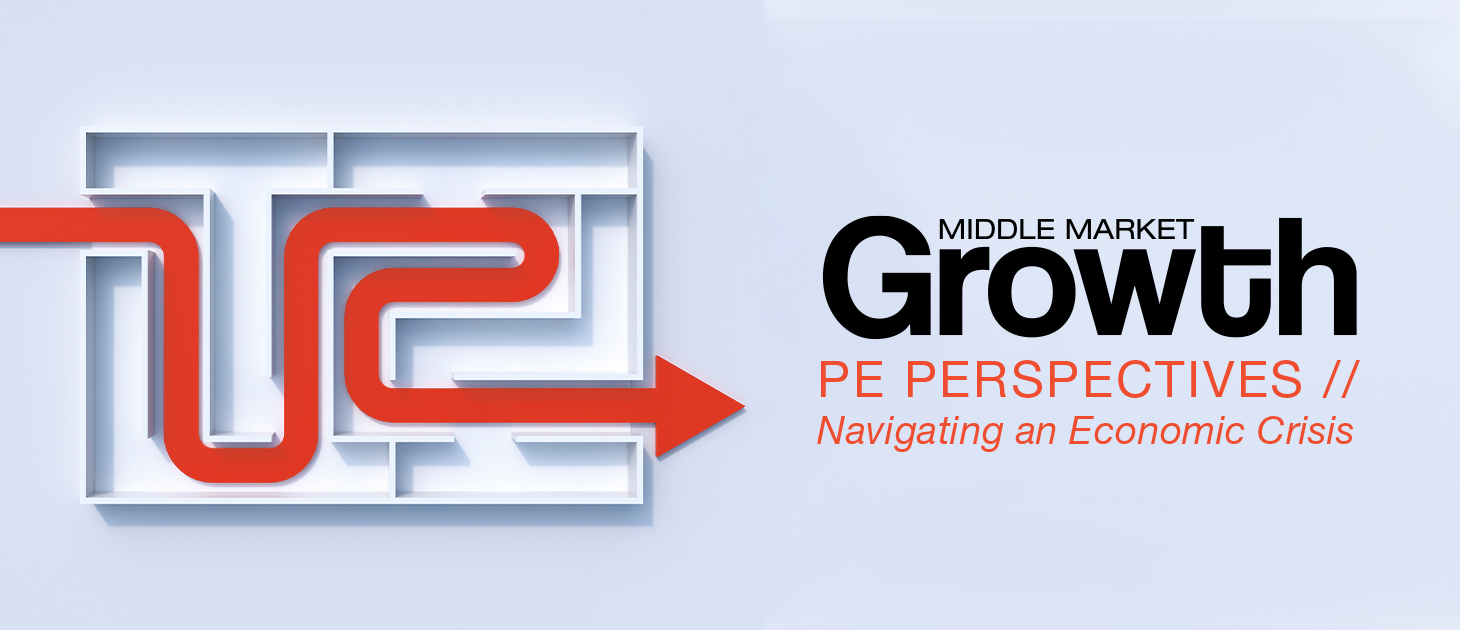Navigating an Economic Crisis: Q&A with VSS
Patrick Turner, managing director at VSS, shares how his firm is navigating fallout from the coronavirus and his view of the market.


Patrick Turner, M.D.
Managing Director, VSS
Headquarters: New York City
Industry focus: Business services, health care, information and education
Investment criteria: EBITDA of $1 million to $25 million; investment range of $10 million to $50 million
Website: www.vss.com
Middle Market Growth spoke with Patrick Turner by phone on March 25.
Q. How is VSS working with its portfolio companies amid the current economic turmoil?
The first thing we did was make sure everyone was safe. We switched to remote work early on, and our companies reacted quickly. We’re focused on tech-enabled business services, so they can work from home in many cases.
The second priority was to do a 13-week cash flow forecast. What do costs look like, what do revenues look like, what are our customers saying in terms of what their visibility is into their own cash flow? In this particular environment, it’s changing pretty much every day, and certainly every week, so the forecast has to be revised continuously to ensure you have plenty of liquidity.
Our portfolio focuses on business and information services (cloud, AI, etc.), health care IT and digital education. As such, we avoid selling directly to consumers; most of our companies sell directly to corporations. Some of our companies have longer-term contracts, and many are integral to their customers’ everyday activities, so they can’t be taken out easily. That offers a bit more stability, and it’s proven to be the case in this situation.
“In terms of new deals, the volume has actually been pretty high. We saw the same amount of volume last week as we did three weeks before that. We’re at the smaller end of the market, so I think that’s where liquidity dries up the quickest.”
Finally, it’s key to have a daily dialogue with the senior management team, but obviously we’re trying not to interfere too much because they have their own things they need to deal with. For those that have debt on their companies, we want to be in contact with senior lenders so they’re fully aware of what’s going on.
Q. How have your deal sourcing activities been impacted?
We were in the process of looking pretty far down the road at two transactions, and we’re proceeding with both of them. We’re just being super careful so that no stone is left unturned in terms of due diligence.
In terms of new deals, the volume has actually been pretty high. We saw the same amount of volume last week [March 16] as we did three weeks before that. We’re at the smaller end of the market, so I think that’s where liquidity dries up the quickest.
VSS is a lower middle-market structured capital investor, and as such, debt levels are typically lower for companies we invest in. At times, we also come in as a minority investor. We provide a solution for all capital needs, not just one area of the balance sheet. We don’t need another lender on a transaction to be able to complete it, which not only takes away risk and uncertainty but can help get the deal done.
Q. How do you expect this crisis to impact dealmaking and financial markets over the next 12 months?
I certainly think the next few months are going to be much, much slower. There are a lot of troubled transactions in the market already in terms of some of the leveraged loans. You’ll see that happen—it happened in the last recession as well.
I would imagine the deals getting done slows down quite a lot and you’ll see distressed buyers coming into the market and being active for quite some time. For new buyouts, I can’t see it being too busy in the immediate future. On the other hand, there’s an opportunity because multiples have come down.
Q. How does the investment climate now compare to the early days of the 2007-09 financial crisis?
It’s not very far off. If you think about it, the debt providers these days are no longer banks primarily. At that time, the financial system really had shut down, but nonbank lenders were still financing transactions, and that will continue. There’s a lot of dry powder. These types of economic disruptions provide significant opportunities, and I think leverage levels will come down for new deals.
Read how other middle-market private equity firms are navigating the economic crisis.


